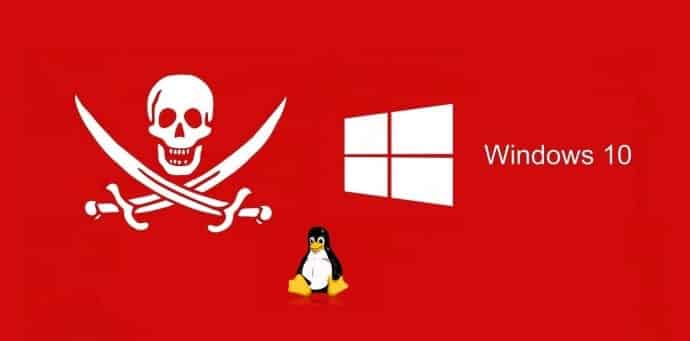Piracy is directly affecting the adoption of Linux and helping Windows
Norwegian economics researcher, Arne Rogde Gramstad in his latest study titled “Software Piracy and Linux Adoption” has suggested that software piracy may be having a beneficial effect on Windows share in the market. In other words, the availability of pirated versions of Windows is leading to fewer individuals installing a Linux operating system on their desktop computers, thereby increasing Windows’ market share.
Piracy is one of the reasons why Windows has been able to maintain its dominant market position, making open-source software operating system such as Linux as “forgotten victims” of copyright infringement.
“I find that an increase in the piracy rate by 1% in a country is expected to reduce the user share of Linux by around 0.5%. Although there is some level of uncertainty on the exact estimate, the direction is negative with a high level of statistical certainty,” Gramstad explains to TorrentFreak.
According to Gramstad’s findings, the amount of people using Linux would jump by 50-65%, if pirated versions of Windows were not to be available tomorrow. This increase would lead to Linux having a 1.5-1.65% usage share (currently around 1%) in an average country. Thus, in the absence of software piracy, Linux would be a more widely used operating system. In other words, it suggests that Microsoft’s dominant position is actually strengthened through piracy.
“I think the results highlight that there are costs to software piracy besides losses to corporate profits,” Gramstad tells TorrentFreak.
“For operating systems, piracy has contributed to Windows’ dominant position, which in effect has undermined competition from open-source alternatives like Linux.”
Gramstad gives three possible reasons that is deterring the adoption of Linux (in any form) due to piracy:
• Illegal copies of Windows are cheap and almost apt alternative to the original;
• Competition from piracy will likely lower the prices of legal copies of Windows; and
• Piracy of Windows may cause increasing differences in the benefit of using Windows as against Linux, as adoption of operating systems are linked to network externalities.
The research stated that Linux would lose around 0.5% of its total market share, if piracy increased by 1% in a typical country (based on data of 104 countries sourced by Net Applications). In other words, in a world without software piracy, the Linux adoption rate should be somewhere between 20 and 40%.
In simpler words, if a pirated copy of Windows is available to people, they tend to adopt if over Linux. However, users are more likely to pick a legally free alternative, namely Linux, if piracy is less widespread in that country.
